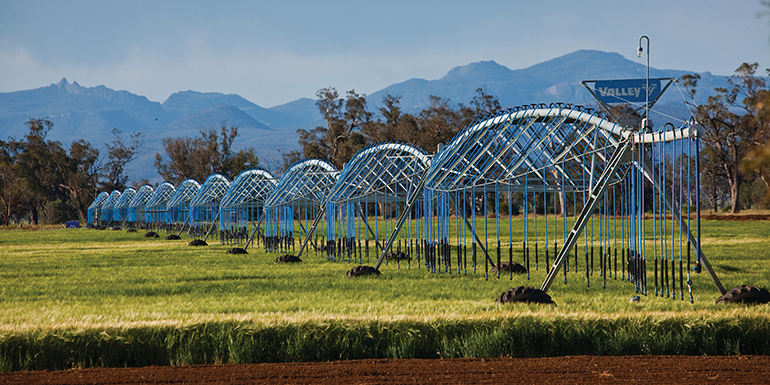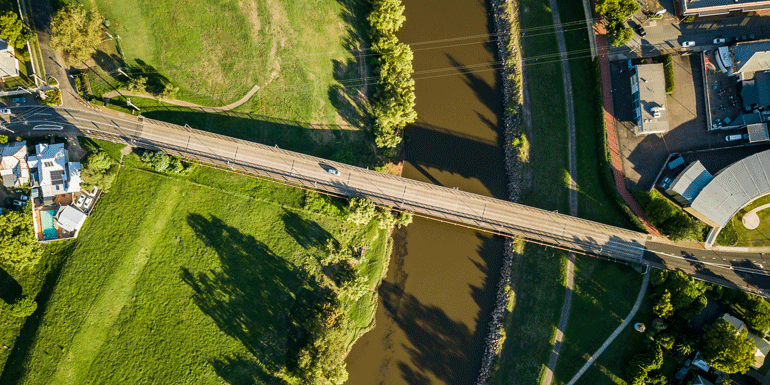How can businesses adapt?
A climate-resilient business is less exposed to climate change impacts and can quickly recover and grow after extreme climate events.
Creating a climate-resilient business involves:
- understanding the impacts of climate change and extreme weather on your business premises, supply chains, activities and employees
- adapting your business to be more resilient
- being prepared for extreme events such as bushfires, storms and floods
- supporting your employees and developing networks for information and support.
These actions will vary, depending on your industry, location and vulnerabilities.
Each business will be exposed to different climate risks, and some risks will be higher than others. It's important to identify the biggest risks to your business. Look at your location, the surrounding area’s vulnerabilities (such as roads in low-lying areas that may be cut off during floods) and the community’s vulnerabilities (such as those with a high risk of health impacts from extreme heat). Understanding these will help you prepare.
It's important to identify the potential direct and indirect impacts that that could affect your business when creating your adaptation plan.
Start by considering the direct impacts that climate change or an extreme event could have on your business. Direct impacts have the greatest potential to harm the operating capacity of your business.
Consider how your supply chains are affected by gradual climate change. Ask yourself:
- What are my alternatives?
- How would my business be affected by property damage or forced closure due to climate change impacts such as flood, bushfires and drought?
- Do I have the right insurance cover to help me manage through a period of inactivity?
- What if my employees can’t work?
Making sure you are well prepared can help make a stressful situation more manageable. The Get Ready Business Guide is a good place to start preparing your business for extreme events. More information can be found through the SES Emergency Business Continuity Plan, Service NSW Business Connect, NCCARF's guide to managing climate risk for small businesses and the Australian government Disaster Assist Program.
Adaptation means thinking about every aspect of your business, and how you can build resilience into your supply chains, business premises, staff, product sales, customers, networks and communications. Options to add resilience may involve creating back-up processes and resources, investigating new technology, or diversifying your products and services.
Does your business have an emergency plan? An emergency plan will cover insurances, work health and safety planning and allow for supply chain disruption. Diversifying your products or services can also help mitigate impacts. The Get Ready Business Guide also contains information on what to do during an emergency.
Look into available grants and loans to support your business through these events while you regain your operation. It’s also a good idea to reassess your business model and look for opportunities to build resilience into your business practices moving forward. The Department of Primary Industries Drought Hub and Service NSW bushfire customer care service provide some of this information for businesses. More information can also be found in the Service NSW business support for bushfire-impacted communities, Quick guide to making insurance claims, and the Australian Government's getting back to business guide.
Climate change and extreme events can affect your employees – which affects your business. You may lose experienced staff, or productivity may be reduced. Ensuring that your employees are well supported with flexible arrangements and counselling if needed can help to reduce the impacts on your business.
Sharing your experience of how your business was impacted by an extreme climate event through business networks is also an important part of adaptation. Learning from the experiences of others helps businesses prepare. This can be done informally, through community support and recovery groups, online through social media, and through business peak bodies.
Related information
SES Emergency Continuity Plan - NSW State Emergency Service
Service NSW Business Support for bushfire-impacted communities - Service NSW
Business Connect - Business in NSW
Bushfire-Resilient Homes Toolkit: industry overview (data current to 2021)- Canberra Region Joint Organisation
Get Ready NSW Resource Hub - NSW Government
Primary industries
Farm Business Resilience Program - NSW Department of Primary Industries Drought Hub
Dealing with Natural Disasters - Meat and Livestock Association
Extreme Weather - Dairy Australia
Visitor Economy
NSW First program - Destination NSW
Crisis management guide for the tourism industry - Victorian Government
Case studies

Learn how NARCliM climate projections are being used by various NSW sectors to understand and adapt to climate change.

Climate change creates a significant risk to infrastructure, people, and the economy. The impacts from climate change, including damaging weather events, has already cost the state an estimated $3.6 billion per year.

Monash University's Climate Change Communication Research Hub applied NARCliM regional climate projections to visualise the projected increase in average summer temperatures across Australia's local government areas.
